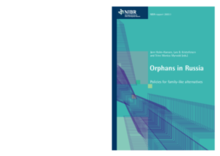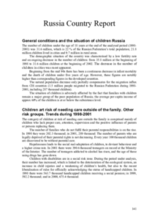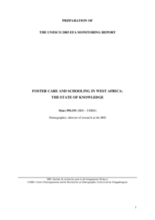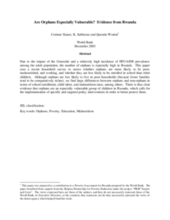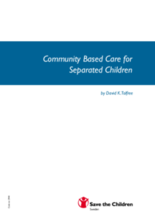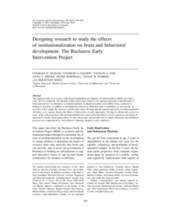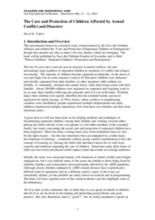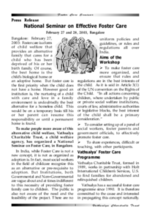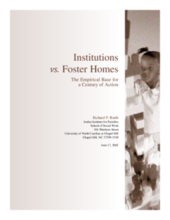Displaying 2171 - 2180 of 2223
The objective of this research project is to contribute to the process of facilitating a more family-like childhood for Russian orphans.
These Standards are based on the relevant legislation, regulation and guidance and best practice derived from evidence based research and professional experience from Ireland and abroad.
Country report of Russia on the situation of children in residential care in anticipation of the Second International Conference on Children and Residential Care: New Strategies for a New Millennium, to be held in Stockholm 12 – 15 May 2003.
Explores the relationship between fostering and education in West Africa. Identifies special need to focus on protecting and educating young girls.
This research paper explores the condition of orphaned children in Rwanda. The paper urges the design of appropriate social protection mechanisms, including differentiated policy responses, conditional cash transfers and increased access to education.
A paper discussing the shortcomings of systems in which separated children are placed into residential/ institutional forms of care. It also considers community-based and some other forms of care as alternative approaches to preventing unnecessary separation of children from their families.
An overview of the largest longitudinal investigation of institutionalized children less than 2 years old ever conducted.
Overview of a research study which provides guidelines for care of separated children in large-scale emergencies, focusing on the negative impact of residential care, extended family care, spontaneous and agency fostering, adoption, and alternative placements for adolescents.
Explores temporary foster care as an alternative to institutionalization in India. Emphasis on analyzing and reforming guidelines for foster care.
A review of institutional care and family-centered care with a discussion of both positive and negative aspects of group care. This review paper is primarily focused on showing the inefficacy of group care and recommending other forms of care such as kinship care and even foster care as options that are more cost effective and better for children’s development.

